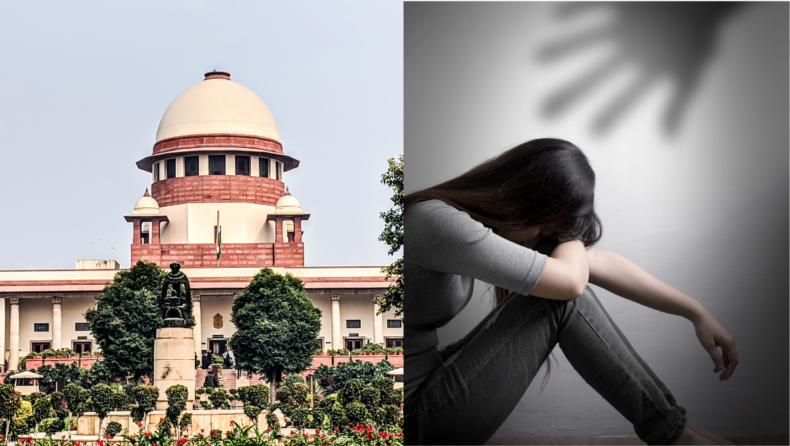Supreme Court issues several guidelines for the Lower/Trial courts regarding sexual harassment cases other than rape cases. These guidelines are being issued to make the victim feel comfortable while registering a complaint and during the trials. The Supreme court allows In-Camera Trials and trials in a closed room. Also said, “Questions related to sexual history are not allowed”.
Under the Code Of Criminal Procedure 327, it is mandatory to conduct cases of sexual harassment in a closed room. The court elaborated on this matter further. Other than this the court said to ensure that the cross-examination of the victim should be done sympathetically and respectfully.
Justice D.Y Chandrachood and Justice J.B Paardiwala said Legal actions for the complainants of sexual harassment are very tough as they go through social attacks and shame. Thus, such cases should be handled carefully, and all courts should take responsibility for it.
Different Sections Of The Code Of Criminal Procedure Say

Section 154 Of Code Of Criminal Procedure, 1973- Initial- Police officers cannot exercise any discretion when they receive a complaint that discloses what constitutes a cognizable offense. Whether the inquiry is done or not should be decided to keep in mind the level of the crime and severity of the complaint.
If the police get to know that no offense has taken place, a Case under CRPC section 173 can be registered. Though, denial of lodging an FIR is not an option.
Section 156(3) Of Code Of Criminal Procedure, 1973- The Magistrate can order the police officials to conduct an inquiry, register, and complaint, and take forward the cases of sexual harassment and violence.
But, this authority cannot be used as per personal opinion and should be taken into consideration under the judicial guidelines only. The discretion given in section 156(3) is read by the magistrate as it is the responsibility of the magistrate to give orders to the police regarding the inquiry of a case.
In cases where it is alleged to be documentary or other evidence in the physical possession of the accused or other persons, which the police, in the exercise of their powers under the CRPC, shall be placed in the best position to investigate and retrieve, the cases should be sent to the police for investigation.
Section 156(3) Of Code Of Criminal Procedure, 1973- Sexual harassment, Sexual attack, or any similar crimes in which the aggrieved was harmed, the court should not put pressure on the complainant, instead pressurize the police to conduct a proper inquiry.
This fact should always be taken into consideration that, Gathering important evidence in regard to the complaint is not possible for the complainant. (Guidelines for trial of sexual harassment cases)
It is the duty and responsibility of the lower courts to deal fairly with the aggrieved persons
To allow in-camera proceedings under section 327 of the Code Of Criminal Procedure when the victim (or another witness) is testifying about his experience of sexual harassment/violence.
Allowing installation of a screen to ensure that the aggrieved woman does not have to see the accused while testifying or instructing the accused to leave the room when the aggrieved woman’s testimony is being recorded.
Ensuring that the lawyer of the accused cross-examines the aggrieved woman in a respectful manner and without asking unreasonable questions, especially regarding the sexual history of the aggrieved woman.
Also, allowing the cross-examination to be conducted in such a way that the counsel for the accused presents his questions in the court, which then places them before the aggrieved woman. As far as possible, the arguments should be completed in one go. (Guidelines for trial of sexual harassment cases)













